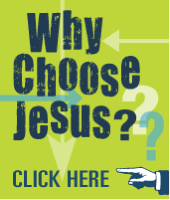| The Council of Nicaea (Nicea) Home > Current Events about Jesus > The Council of Nicaea (Nicea) |
Background to Nicene Council
Of the 318 assembled, only two did not vote to accept the creed. What was the debated issue? There was no debate about whether Jesus was the Creator of heaven and earth, working in conjunction with God the Father. There was no debate about whether Jesus was the “only begotten Son”, meaning uniquely and singularly the Son of God - the only one of his kind. The debate was on a technical issue of whether “begotten” meant “conceived” by God the Father, or “created” by God the Father. The two dissenters (Arius and Eusebius) argued that the Father created the Son. Does a father create a child? Or, does a father conceive a child? We understand today that a father’s cell replicates and divides to beget (birth) a child. The child is of the same substance (nature, design and DNA) as a father, not of different substance. Even during the Council, it was commonly understood that a father doesn’t actually create the child, like a craftsman putting together wooden puppet pieces. It may be of interest to note that "Only begotten" is from the Greek monogenes. The word is a compound word, mono, meaning only, and gennesis, meaning birth. "Only begotten" (monogenes) is used five times by John, three by Luke, and once by the writer of Hebrews. Luke used the word to describe the widow's son, "only son of his mother" (Lk. 7: 12, see 8: 42, 9: 38). The writer of Hebrews said Abraham "offered up his only begotten son" (Heb. 11: 17), referring to Isaac. For historical source material on this debate, see “St. Athanasius - Four Discourses Against the Arians”: http://www.newmanreader.org/works/athanasius/volume1/index.html BIBLIOGRAPHY
|
My Workspace
|
|


